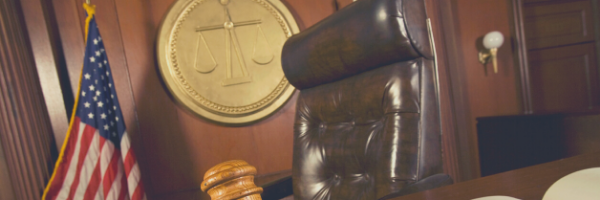A look at judicial vacancies and appointments under Trump
From time to time, we’ve brought you updates on the federal judges who have been nominated and confirmed under the Trump administration. With inauguration day tomorrow, let’s wrap up the numbers of the 45th President with a look at where things stand today.
Vacancies
President Trump was inaugurated four years ago on Jan. 20, 2017. At that time, there were 108 lifetime federal judicial vacancies requiring a presidential nomination. This was the largest number of vacancies at the beginning of a presidency since 1992, when there were 111 vacancies at Bill Clinton’s (D) inauguration.
As of Jan. 18, there were 46 federal judicial vacancies requiring a presidential nomination. This is the lowest number of at the beginning of a presidency since there were 37 vacancies when George H.W. Bush (R) was inaugurated in 1989.
Nominations
Since taking office, Trump nominated 274 individuals to federal judgeships. Trump made the most Article III judicial nominations in April 2018 (27). There were nine months in his presidency during which he made no Article III judicial nominations.
Confirmations
Of Trump’s 274 federal judicial nominations, the U.S. Senate confirmed 234 of them. The average number of judicial confirmations for the first four years of a presidency since Jimmy Carter (D) is 205. The Senate confirmed 261 of Carter’s judicial nominees, the most confirmations through four years. President Ronald Reagan (R) had the fewest at 166.
The Senate has confirmed 54 of President Trump’s appellate court nominees, the second-most on the list. President Jimmy Carter had the most with 56. Presidents Bill Clinton and Barack Obama had the fewest number of appellate confirmations with 30. The median number of appellate court confirmations is 35.
The median number of U.S. District Court confirmations is 168. The Senate confirmed 202 of President Jimmy Carter’s district court nominees, leading the list. President Ronald Reagan had the fewest number of district judges confirmed, with 129.
For more on this subject, keep reading at the link below.
Special election canceled for Louisiana state House after lack of candidates
After Brett Geymann (R) was the only candidate to file for the special election for Louisiana state House District 35, the Feb. 6 primary and March 20 general elections were canceled. Geymann was then automatically elected without appearing on the ballot.
The seat became vacant after the resignation of Stephen Dwight (R) on Dec. 1, 2020. He had represented the district since 2016.
Ballotpedia has identified 14 states with laws that explicitly allow for elections to be canceled at the state level. The individual laws governing when and how elections can be canceled vary. For example, in North Carolina, a canceled election can lead to a vacancy, appointment, or leaving the incumbent in place. In Connecticut, if a candidate does not gain endorsement from their party or at least 15% of the party’s delegation, then the election will be canceled. Click here for details.
As of January 2021, 20 state legislative special elections have been scheduled for 2021 in 14 states. Between 2011 and 2019, an average of 88 special elections took place each odd-numbered year.
SEIU asks CA Supreme Court to declare Prop 22 unconstitutional
Here’s an update on California Proposition 22, an initiative that defined app-based transportation (rideshare) and delivery drivers as independent contractors and not employees or agents. With $225 million between supporters and opponents, Prop 22 was the most expensive ballot measure in California history, surpassing the next closest measure by $70.5 million.
On Jan. 12, the Service Employees International Union (SEIU) and four app-based drivers sued the state government in the California Supreme Court. The SEIU is seeking to have Proposition 22 declared unconstitutional and unenforceable.
Bob Schoonover, president of SEIU California, said, “Prop. 22 doesn’t just fail our state rideshare drivers, it fails the basic test of following our state constitution. The law as written by Uber and Lyft denies drivers rights under the law in California and makes it nearly impossible for lawmakers to fix these problems.”
Kathy Fairbanks, a spokesperson for Yes on Proposition 22, provided a statement from an app-based driver, which said, “Meritless lawsuits that seek to undermine the clear democratic will of the people do not stand up to scrutiny in the courts.”
Prop 22 was approved at the Nov. 3, 2020, election with 58.6% of the vote. The measure overrode Assembly Bill 5 (AB 5), signed in September 2019, on the question of whether app-based drivers are employees or independent contractors.
Click the link below to stay up-to-date on the case.
Keep reading


